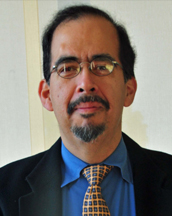
The Nephrology Board—which meets twice a year and is responsible for oversight of policy and assessment in the specialty—held its fall meeting on September 16, 2024. The Specialty Board reviewed updates on ABIM’s work in a number of key areas and discussed other pressing issues in the field. In addition, representatives from the American Society of Nephrology (ASN) and the Renal Physicians Association (RPA) joined the conversation for a portion of the meeting*.
The following is a summary of the fall meeting. For reports of prior meetings, visit the ABIM Blog.
Contents:
- ABIM News and Conversation with the President*
- Diplomate Professional Profile*
- Diversity, Equity and Inclusion (DEI) Initiatives at ABIM*
- Procedural Requirements for Initial Certification in Nephrology
- Program Accreditation in Transplant Nephrology*
- Recommending Candidates for the Specialty Board to ABIM Council
- Learn More
ABIM News and Conversation with the President*
Prior to the meeting, members and guests of the Nephrology Board had the opportunity to view a recorded video update from Furman S. McDonald, MD, MPH, who assumed the role of President and Chief Executive Officer (CEO) of ABIM and ABIM Foundation on September 1, 2024. Dr. McDonald reflected on current transitions for ABIM as well as key topics for the Specialty Board’s consideration and awareness:
- A proposed pilot model for “exceptionally qualified” international medical graduates (IMGs) pursuing accredited subspecialty fellowship in the U.S. or Canada to become eligible for ABIM Board Certification: ABIM invited commentary from the diplomate community throughout September for the ABIM Council to consider before making a final decision early in 2025, and Dr. McDonald noted that this timing coincides fortuitously with—but is distinct from—similar initiatives for state medical board licensure. Learn more through a video and FAQs on the ABIM website.
- ABIM’s progress in engaging more closely with early career physicians (diplomates who earned initial certification less than 10 years ago): a task force of Governance members is making plans for the coming year to convene early career physicians, create a platform for their perspectives and provide opportunities for them to be more directly involved in ABIM.
- The continued popularity of the Longitudinal Knowledge Assessment (LKA®), high rates of reported satisfaction and ongoing enhancements: on average, 80% of eligible diplomates continue to choose the LKA over the traditional, 10-year Maintenance of Certification (MOC) exam, and 70.7% of survey respondents agreed with the statement, “I am satisfied with my LKA experience so far.” Still, Dr. McDonald noted, ABIM continues to evolve and improve the assessment based on diplomate feedback.
- The recently announced removal of the requirement to earn some MOC points every two years to be considered “Participating in MOC.” With the availability of more activities that earn physicians MOC points (e.g., continuing medical education for MOC, UpToDate®, the LKA), the Council determined that the two-year point requirement was no longer needed and that its removal would benefit physicians by making the program simpler. The requirement to earn at least 100 MOC points every five years remains in effect.
The conversation continued around early career physician engagement. The Governance task force has conducted focus groups to gather early career physicians’ input and plans to create an opportunity for them to gather in person to discuss their perspectives on policy and programs. In addition, ABIM has created opportunities for early career physicians to be actively involved in governance and item-writing. Members also briefly discussed the ongoing review of assessment items for bias and inequity and noted that minimal items were identified to have shown bias and many of those were modified to reduce bias.
The group also discussed the implications of the LKA’s success on the future of the traditional, 10-year exam. ABIM remains committed to offering the traditional exam as an option for diplomates who prefer it.
Diplomate Professional Profile*
In summer 2023, ABIM invited a pilot group of diplomates to complete the newly developed Diplomate Professional Profile (DPP), a questionnaire required of all diplomates that is built into the Physician Portal. The questionnaire relates to clinical work and practice patterns and serves to inform ABIM’s ongoing efforts to update assessment options and exam blueprints and develop policies for initial certification and MOC. Since last year, ABIM has continued to invite all remaining eligible diplomates on a rolling basis to complete the DPP. Diplomates receive a prompt to complete their professional profile when they sign in to their Portal.
Siddharta G. Reddy, MPH, Senior Research Associate at ABIM, reported to the Specialty Board that 31% of diplomates overall have completed their DPP; he also reviewed profile questions specific to nephrology. He concluded by noting that ABIM will share findings from the DPP with the Nephrology Board once sufficient data are available.
Diversity, Equity and Inclusion (DEI) Initiatives at ABIM*
Natalie S. Plummer, Esq., Manager, DEI Programs at ABIM, and Pamela White, Senior Vice President, Communications, and Chief DEI Officer, reported on the work of the DEI team at ABIM and recent advances in ABIM’s DEI initiatives. These include:
- ABIM’s work with participating medical society partners, which led to the formation of the Diversity, Equity and Inclusion Collaborative Network. The goal of the network is to share best practices, coordinate resources and create strategies to support and move diversity work forward as a community dedicated to this work.
- Improvements to the ABIM Physician Portal that now allow diplomates to more accurately self-identify their race/ethnicity and gender with an expanded list of options. This also aligns with ABIM’s efforts to increase diversity in governance and eliminate bias in assessment questions. Since this effort began, ABIM has seen consistent growth in the number of physicians supplying information, with more than 77,000 diplomates updating their information.
- A report led by Dr. Sara Ray, a medical historian from the University of Pennsylvania, to study the governance records of ABIM. The goal of this project was to determine whether ABIM’s practices within the context of the past caused harm to historically disadvantaged groups and whether that might require restorative action and transparency.
Rudolph A. Rodriguez, MD, Chair of the Nephrology Board, suggested analyzing the data relative to diplomates who identified themselves as IMG or U.S. medical graduates.
Tod Ibrahim, Executive Vice President of ASN, also spoke about the need to examine the use of biased algorithms and the inclusion of race and ethnicity on exam items, and asked ABIM to take a leadership role in this effort. To date, ABIM has undertaken review of items in multiple specialties to identify and eliminate biases.
Procedural Requirements for Initial Certification in Nephrology
At its fall 2023 meeting, the Nephrology Board voted to approve proposed revisions to the procedural requirements for initial certification in nephrology, which were subsequently published in January and went into effect for fellows entering training in July 2024. (More information can be found on the ABIM Blog and in a detailed policy journey analysis published in The American Journal of Kidney Diseases.) Dr. Rodriguez held an open discussion with the Specialty Board and society representatives and invited them to share feedback from their communities about the new requirements.
Members of the group reported some confusion among trainees about the origin of the revisions, the new requirements in general and the opportunity-to-train standard in particular. Mr. Ibrahim discussed the shift to home-based modalities represented by the new requirements, pointing out that some programs struggle with patient or facility access.
Keith Bellovich, DO, President of RPA, pointed out that there are fewer nephrologists performing procedures and stressed the importance of nurturing procedural expertise as well as pre-, peri- and post-procedural operative care. Dr. Rodriguez opined that an educational campaign might be helpful for encouraging fellows to request the procedural training they need. However, the group did not commit to a specific plan of action at the time.
Dr. Rodriguez suggested that the group revisit the discussion in spring 2025, when first-year nephrology fellows are due to complete their clinical year and greater preparation efforts will begin.
Program Accreditation in Transplant Nephrology*
At the spring 2024 meeting of the Nephrology Board, Deborah B. Adey, MD, spoke about the development of a proposal for the Accreditation Council for Graduate Medical Education (ACGME) to accredit transplant nephrology fellowships, undertaken by a joint task force convened of ASN and the American Society of Transplantation (AST). Dr. Adey updated the Specialty Board that the joint proposal had since been submitted.
Several members of the Specialty Board shared concerns about the implications of accrediting transplant nephrology programs, such as whether general nephrologists would be less likely to care for transplant patients, potential confusion for patients and the value of accreditation when considering that physicians can care for transplant patients without transplant nephrology fellowship training. Dr. Adey noted that this was true but added that these physicians cannot hold director or leadership positions in transplant nephrology without transplant fellowship. She explained further that a separate designation could allow for transplant-related coding designation by the Centers for Medicare & Medicaid Services and open the opportunity for transplant nephrology funding that is currently coming in through a variety of other sources, including division funds.
The group also discussed the possible relevance of accredited transplant nephrology programs to profiles of nephrology practice that might be surveyed in the future for development of more focused versions of the Nephrology LKA.
Society representatives departed at this point in the meeting.
Recommending Candidates for the Specialty Board to ABIM Council
Each year, ABIM initiates the process of recruiting candidates for open seats on the Specialty Boards; each member serves a three-year term with the option for one renewal, and positions open on a rolling basis. ABIM posts all openings on its website and shares them with diplomates and other stakeholder groups. The Specialty Board pays close attention to its own present and future composition, namely how practice setting and region, career stage, educational background (U.S., international) and race and ethnicity are represented among its members. The ABIM Council makes final selections based on the Specialty Board’s top two recommendations for each open seat.
In June, ABIM announced openings on the Nephrology Board for a nephrologist practicing in a non-university/community setting and an interprofessional health care team member (e.g., RN, NP, Pharm.D., PA) with experience in nephrology for terms beginning July 1, 2025. At the fall meeting, the Nephrology Board discussed the candidates they had interviewed and voted on two for each position to recommend to the Council. ABIM will announce the final appointees in spring 2025 prior to the start of their terms.
Learn More
The Nephrology Board values the feedback and commentary of the entire medical community, including diplomates and society partners.
Are you interested in getting involved?
- Apply to an opening on ABIM Governance or the Item-Writing Task Forces.
- Join the Community Insights Network, an interactive community for sharing your feedback.
Keep on top of the latest news from ABIM.
- Subscribe to the ABIM Blog.
Do you have questions? Contact ABIM directly:
- Call 1-800-441-ABIM (2246).
- Email request@abim.org.
*Indicates society representatives were present for this agenda topic.



